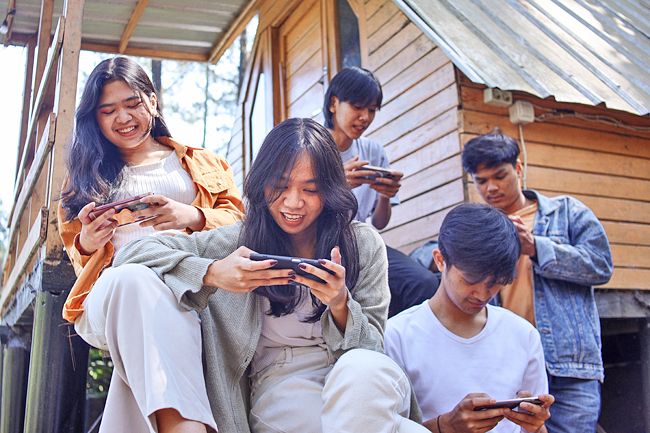ANN/THE STAR – Social media and the Internet are firmly entrenched in the daily lives of Malaysians, significantly shaping their lifestyle, thought processes, values, and even their political affiliations.
A study conducted by Kajidata in July, using a randomly selected sample of 1,082 respondents, revealed that a whopping 71 per cent of Malaysians use WhatsApp daily, followed by Facebook (51 per cent), TikTok (49 per cent), Instagram (45 per cent), and X (formerly Twitter) at 30 per cent.
Internet usage is equally pervasive, with 61 per cent of respondents reporting substantial online activity throughout the week.
In his analysis of the study’s findings, Kajidata advisor Professor Syed Arabi Idid said that traditional media channels such as television (40 per cent) and radio (20 per cent) could not compete with the lure of social media and the Internet.
He emphasised that these findings shed light on which mediums possess significant influence over people and how they can be effectively harnessed for engagement and influence.
Concurring with Professor Syed Arabi, Kajidata’s adviser, Haris Ismail, added the findings underscore a fact – social media is widely used to influence people, including by political parties.
This influence was notably evident during the recent six-state election in August, where political parties ramped up their online presence, even engaging in divisive politics by exploiting issues related to race, religion and the royals.
However, Haris cautioned that the sheer reach of political parties on social media does not necessarily translate to political dominance.
“This is because they make ‘paid appearances’ and, as such, do not accurately reflect the party’s actual strength,” he explained.
Professor Syed Arabi further pointed out another significant finding from a study conducted just before the six-state election in August – slightly more than half of Malaysians indicated they would vote for the party rather than the candidate.
While Malays, other bumiputras, and Chinese voters predominantly supported the party, slightly more than half of Indians and other ethnic groups favoured individual candidates.
Haris highlighted that this trend was particularly noticeable among supporters of parties like Malaysian Islamic Party (PAS), who prioritise the party over the candidate, as seen in the six-state election.
Furthermore, the popularity of the country’s leaders, compared with earlier studies, has seen fluctuations, which, according to Professor Syed Arabi, reflect the high expectations placed on leaders and the realities faced by the people.







